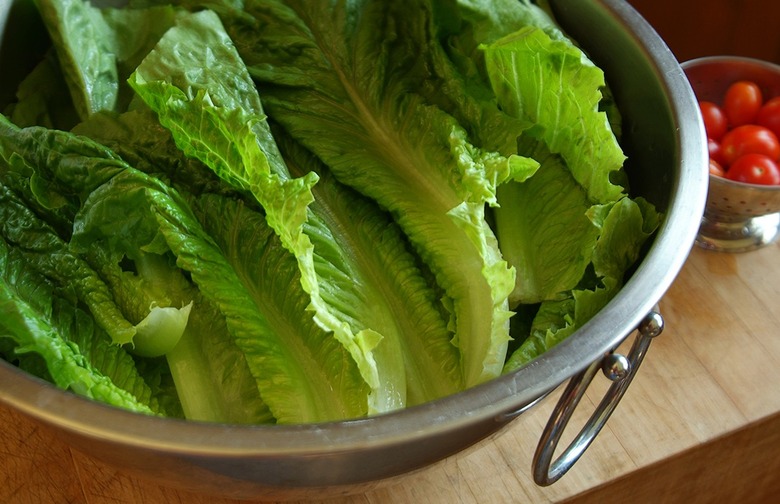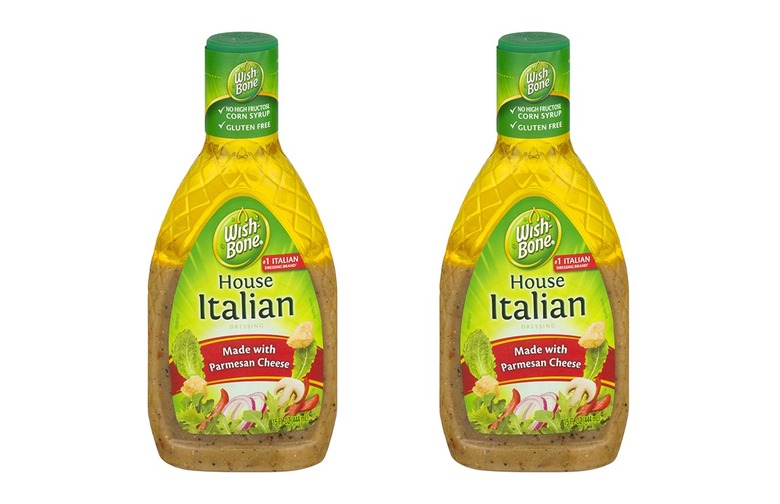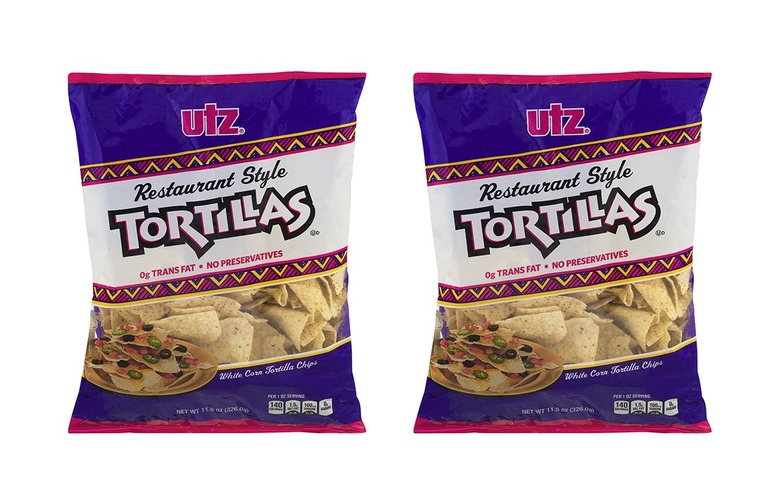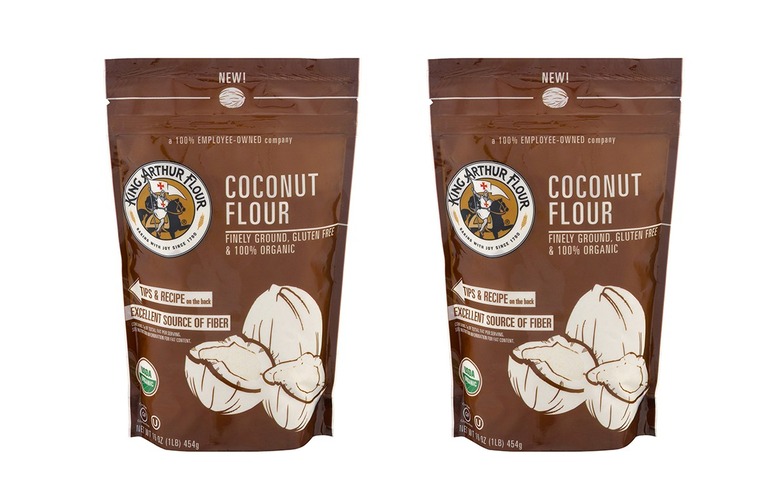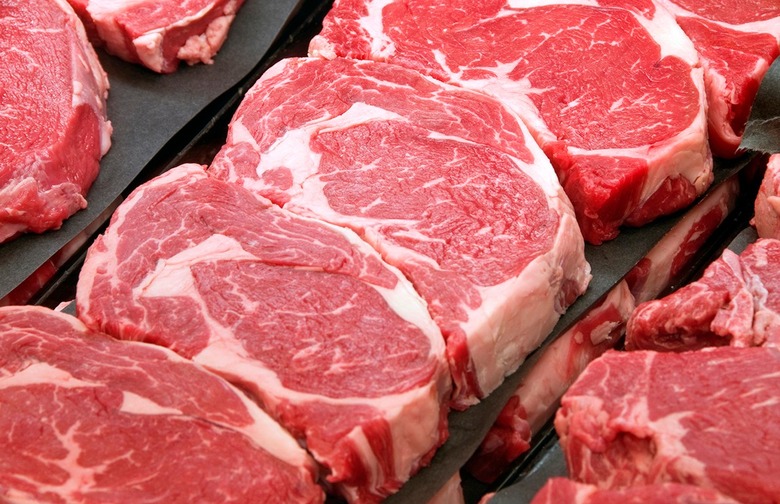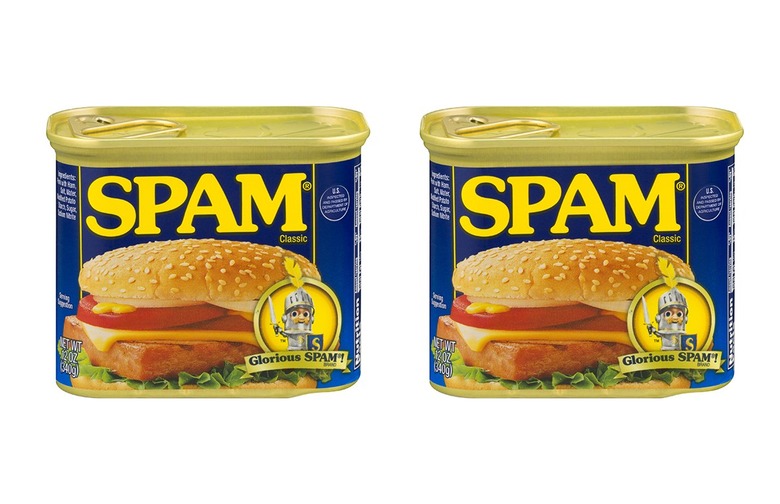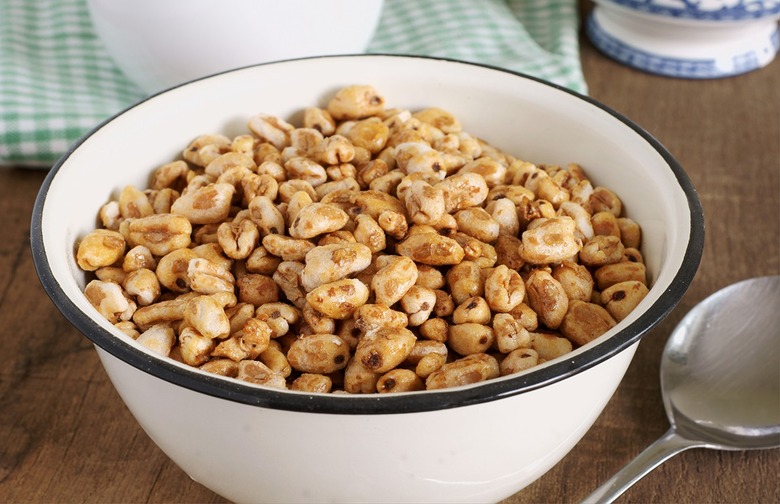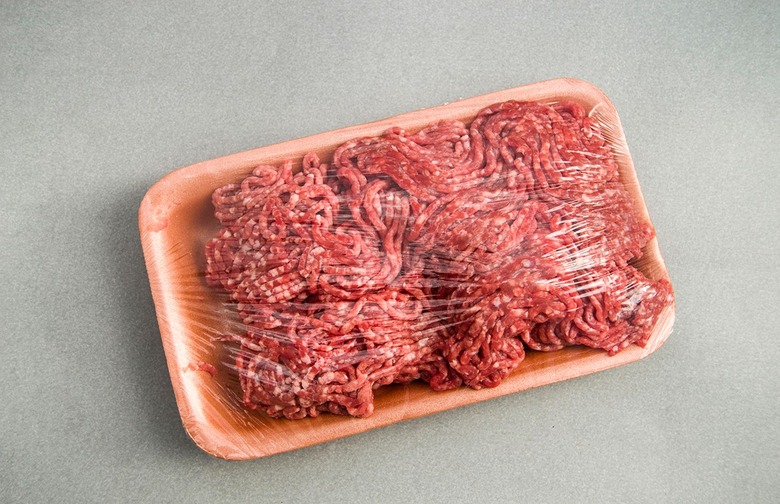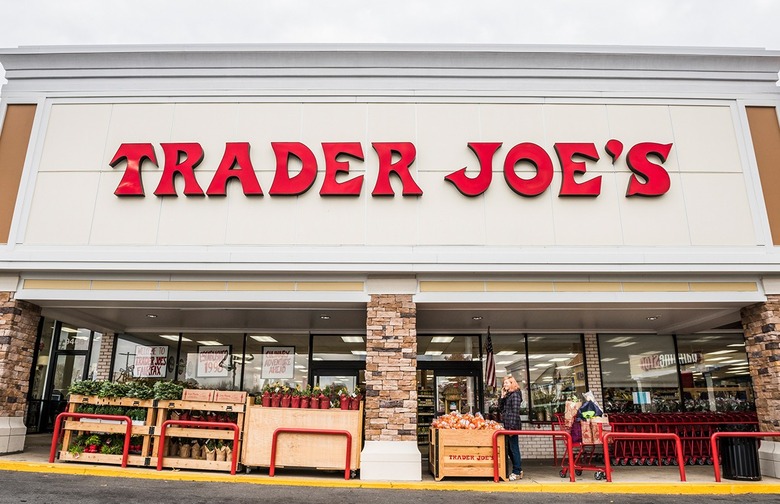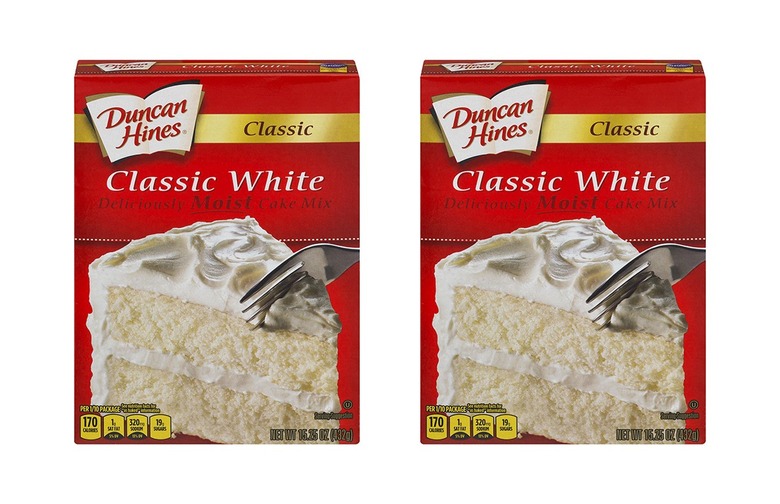The Biggest Food Recalls Of 2018 List
Between deadly romaine, infected beef products, and a popular cereal that sickened dozens, 2018 was full of major national recalls of many popular food and drink products. According to the Food and Drug Administration's database, there were 1,928 food and cosmetic recalls in the 2018 fiscal year (October 1, 2017 through September 30, 2018). That might seem like a lot, but it was actually far fewer than the 3,609 the year before (remember the huge bag salad and flour recalls?).
Recalls can range from large to small, sometimes spreading nationwide and other times affecting just one small area of a state. Food recalls can be caused by any number of hidden dangers, including foreign particles in the food, food-borne bacteria contamination, or undeclared allergens. When a food is recalled, it's usually taken quickly off store shelves. But it is important to be vigilant and if a food you bought was recalled, you definitely should not eat it. So, do you really need to freak out over food recalls? Maybe not.
But still, it's always wise to stay informed. In case you missed them, we rounded up the biggest, most impactful food recalls of the year. To compile our list, we turned to the Centers for Disease Control and Prevention's list of food-borne illness outbreaks and the food recalls that received the most media attention — often because they were the cause for more concern than most. Additionally, we took into consideration the recalls listed on the FDA database and selected those that impacted the most states. Hopefully you managed to avoid the largest food recalls of 2018.
Romaine Lettuce
It's been a rough year for salad lovers. There were a total of three E. coli outbreaks linked to leafy greens in 2018. The first was from an outbreak that began in December 2017, resulting in 25 illnesses. The outbreak prompted a trace-back investigation that focused on romaine. The second E. coli outbreak occurred in April, and was eventually confirmed to have spread through lettuce from the Yuma region of Arizona. The bacteria may have reached lettuce supplies through canal water, probably due to nearby cattle farms and cow poop, according to the FDA and other organizations. The outbreak linked to the Yuma region resulted in a total of 210 illnesses, 96 hospitalizations, and five deaths, finally ending on August 2. The third (and hopefully the last) E. coli outbreak linked to romaine lettuce occurred in November. So far, the FDA reports 43 illnesses. The current warning for consumers is to avoid lettuce sourced from the central coast of California.
Wish Bone House Italian Salad Dressing
On June 28, 7,768 cases of 15-ounce Wish Bone House Italian Salad Dressing containers were recalled from locations in 31 states. Though the product was made with milk and egg, these allergens were not listed on the label. The recall was considered "Class I," the most serious of the three categories, because ingesting the product could be fatal for those with certain allergies. The recall is ongoing; those with milk and egg allergies should avoid consuming dressings affected by the recall. More detailed information about this recall can be found here.
Utz Tortilla Chips
On May 2, Utz Quality Food Inc. voluntarily recalled select expiration dates of some Golden Flake, Good Health, Utz, and Weis Brand Tortilla Chip items due to potential contamination of an undeclared milk allergen. The full list of affected products can be found on the FDA notice. Consumers were urged not to eat the chips that could contain milk, since this could be life-threatening for those with an allergy. The recall affected 32 states, but was terminated on September 10. Another recall from Utz was initiated on July 14, when some of its Carolina Style Barbeque Potato Chips contained an undeclared soy allergen. It recalled 96,278 bags, according to the FDA.
King Arthur Organic Coconut Flour
King Arthur Flour recalled 25,200 pounds of organic coconut flour from 26 states after it tested positive for salmonella. There were no reported illnesses from the products, but consumers who purchased them were urged to throw them away or return them to the place of purchase for store credit or a refund. You can find more details about this recall here.
Whey Powder
Though no illnesses were reported, whey powder from Associated Milk Producers contaminated with salmonella resulted in recalls for dozens of products across multiple brands, including Goldfish and Ritz Crackers. The whey itself was recalled in July. Mondelez International, Pepperidge Farm, and Flowers Foods Inc. all voluntarily recalled products due to possible salmonella contamination from whey powder used in their products.
Evershing International Trading Company Frozen Shredded Coconut
In January, there was a salmonella outbreak that affected nine states, sickening 27 people, according to the CDC. The outbreak was eventually linked to bags of frozen shredded coconut, recalled on January 3. Salmonella infection can be fatal, especially for young children, the elderly, and those with weakened immune systems. You can read the full details of the recall here.
Meijer Yogurt
Meijer recalled some of its store-brand yogurt after a customer found pieces of glass inside one of the cups. The yogurts affected were certain Meijer brand flavors of Greek and low-fat yogurt. There were no reported illnesses or injuries. The full list of recalled products can be found on the FDA website.
Eggs
Eggs were recalled multiple times this year due to salmonella contamination. More than 200 million white eggs distributed by Rose Acre Farms in Seymour, Indiana, were recalled on April 13 after health officials traced multiple illnesses back to eggs produced at the company's facility in North Carolina. The FDA issued a recall notice and warning. Then, the egg recalls continued when Cal-Maine Foods issued an additional recall affecting the eggs distributed from Rose Acre Farms. The recall affected Publix products, among others. It was later discovered that the farm was infested with mice.
Raw Beef Products
On May 2, JBS USA (a major supplier of beef products) recalled more than 35,000 pounds of raw beef due to potential contamination by hard plastic. A news release from the United States Department of Agriculture has the full list of affected products, some of which were sold at Kroger. Find more details about the recall here.
Canned Pork and Chicken
The manufacturer behind Applegate, Muscle Milk, Skippy, Spam, and Wholly Guacamole recalled 228,614 pounds of canned pork and chicken products that may have been contaminated with foreign matter, according to the United States Department of Agriculture's Food Safety and Inspection Service. You can find the full list of affected products and more information here. What "foreign matter," you ask? The official notice did not specify. But the issue was discovered after four customers complained of finding metal pieces in these foods.
Kellogg’s Honey Smacks
Kellogg's issued a voluntary recall on Honey Smacks cereal after people were infected with salmonella. According the CDC, there were 135 total illnesses by the time the outbreak was over, spanning across 36 states. The items included in the recall were 15.3-ounce and 23-ounce boxes of Honey Smacks with "best if used by" dates of June 14, 2018, through June 14, 2019. The recall was so extensive that the FDA took to Twitter to urge people not to eat the sugary cereal.
Wayne Farms Frozen Chicken
On September 5, Wayne Farms recalled 438,960 pounds of frozen, fully cooked chicken products because they could contain metal fragments. A news release from the USDA lists all products that were affected. You can find more details about the foreign matter found in the chicken here.
Ground Beef
Cargill Meat Solutions recalled approximately 132,606 pounds of ground beef products, suspecting they may have been contaminated with E. coli. A USDA release from September 19 says that the associated E. coli outbreak resulted in 17 illnesses and one death. You can read more in-depth coverage of the outbreak here.
Trader Joe’s and Harris Teeter Ready-to-Eat Foods
Trader Joe's is known for its extensive prepared foods section, perfect for millennials who are averse to cooking for themselves. However, Trader Joe's and Harris Teeter recently were hit with a recall due to concerns about salmonella and Listeria monocytogenes. The USDA release says there were nearly 800,000 pounds of ready-to-eat meat and poultry products affected, all of which contained onions that may not be safe to eat. The release also contains a full list of affected products.
Duncan Hines Boxed Cake Mix
According to the FDA, a salmonella outbreak in September may have been linked to Duncan Hines cake mixes. They recommended that consumers refrain from baking the affected mixes and avoid eating uncooked cake batter in general. The FDA announced a recall of multiple varieties of the cake mix, which includes a full list of affected products. Think these food recalls were bad? They pale in comparison to some of the worst food recalls in American history.
More From The Daily Meal:
The World's Biggest Food Poisoning Scares
55 Things You Can Do to Fight Hunger in America
Tips for Avoiding Food Poisoning
25 Formerly Popular Dishes Restaurants No Longer Serve
Meet the Clean 15: The Fruits and Vegetables Least Likely to Poison You
